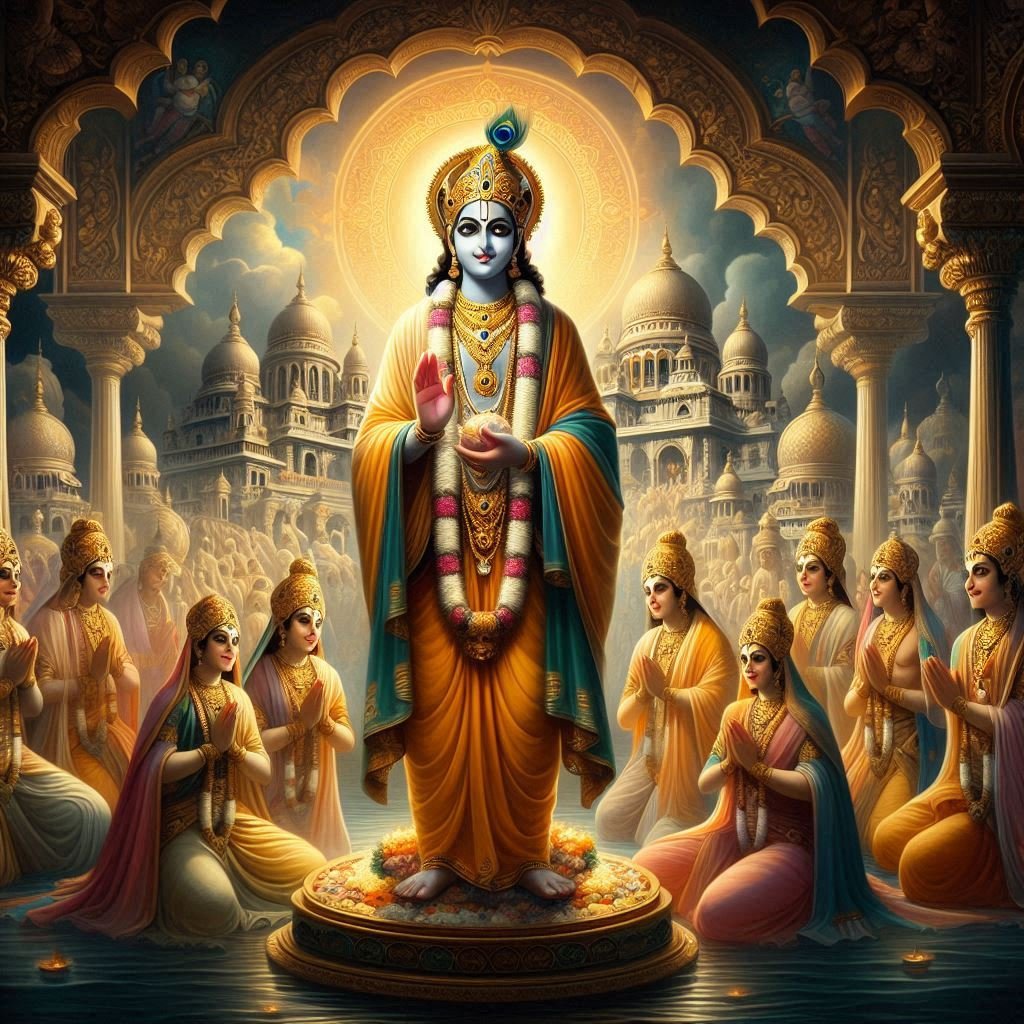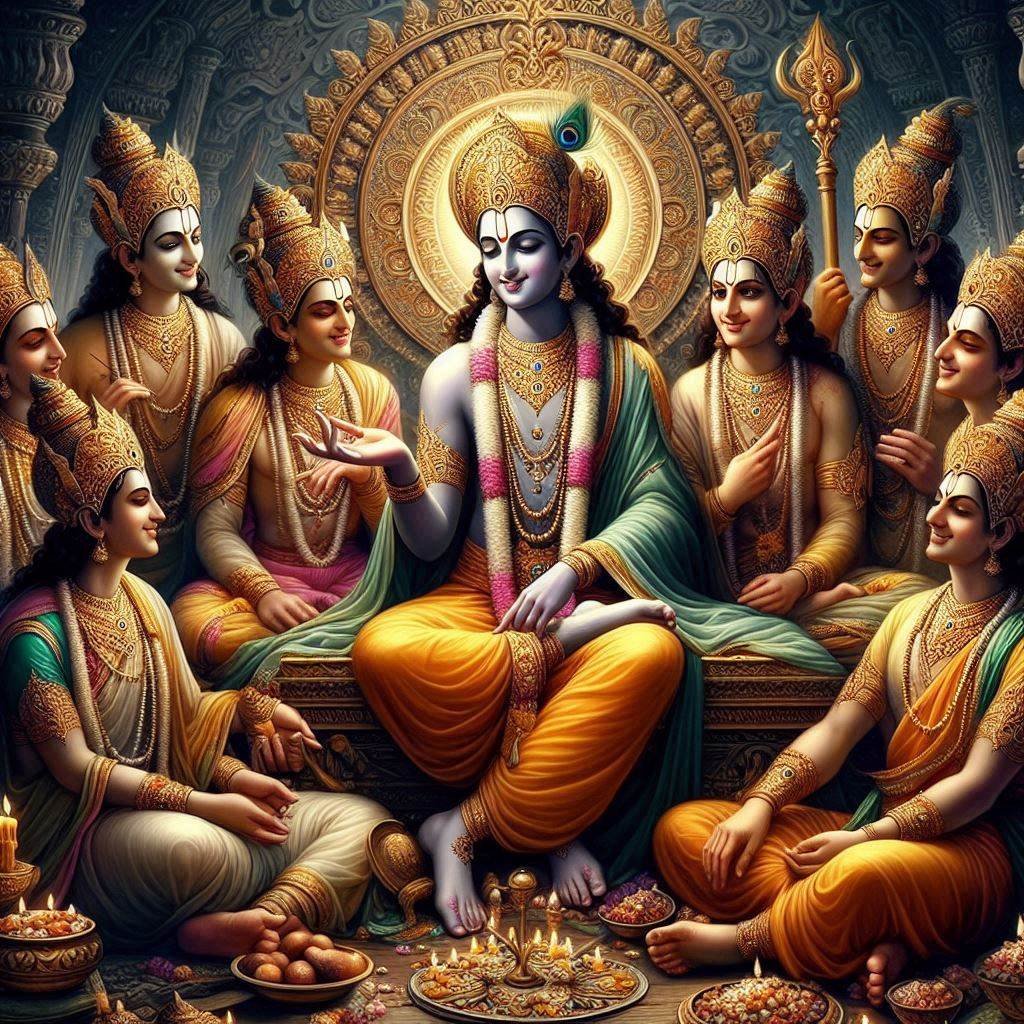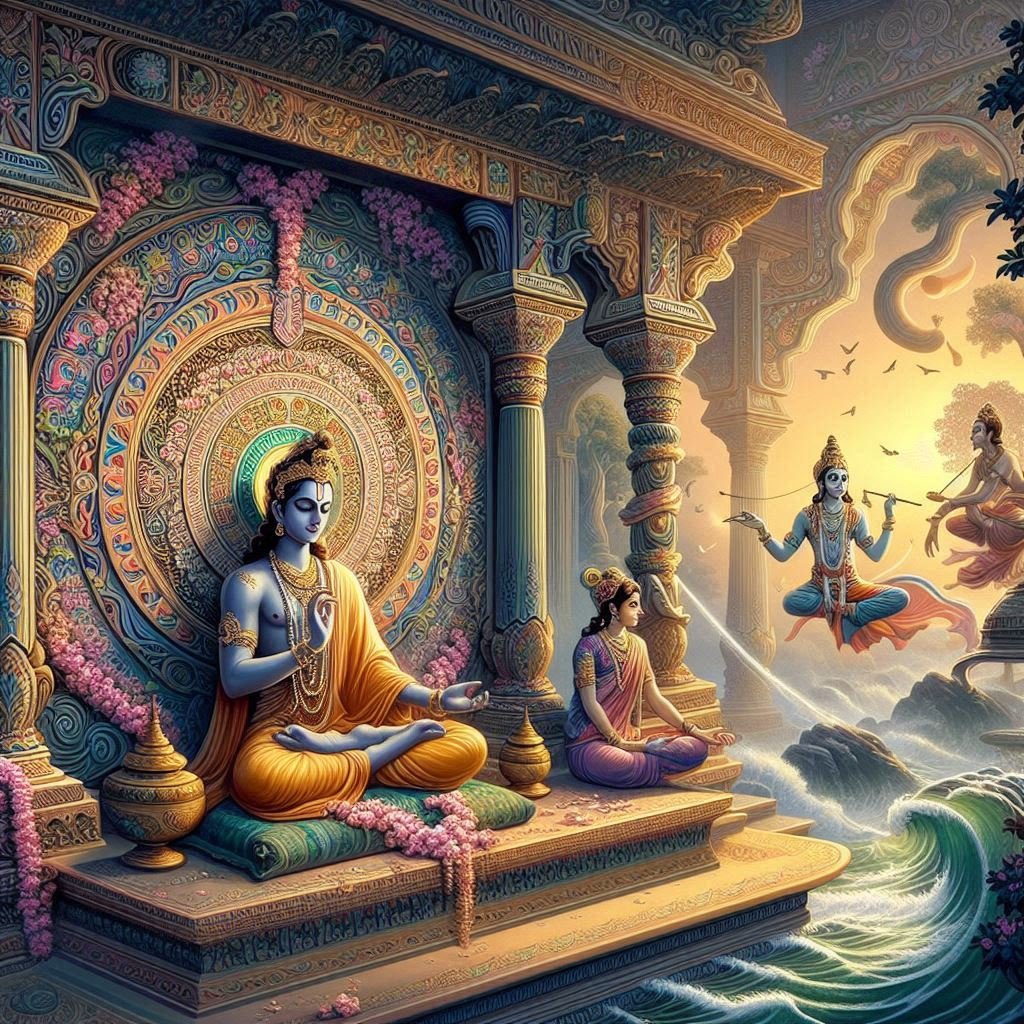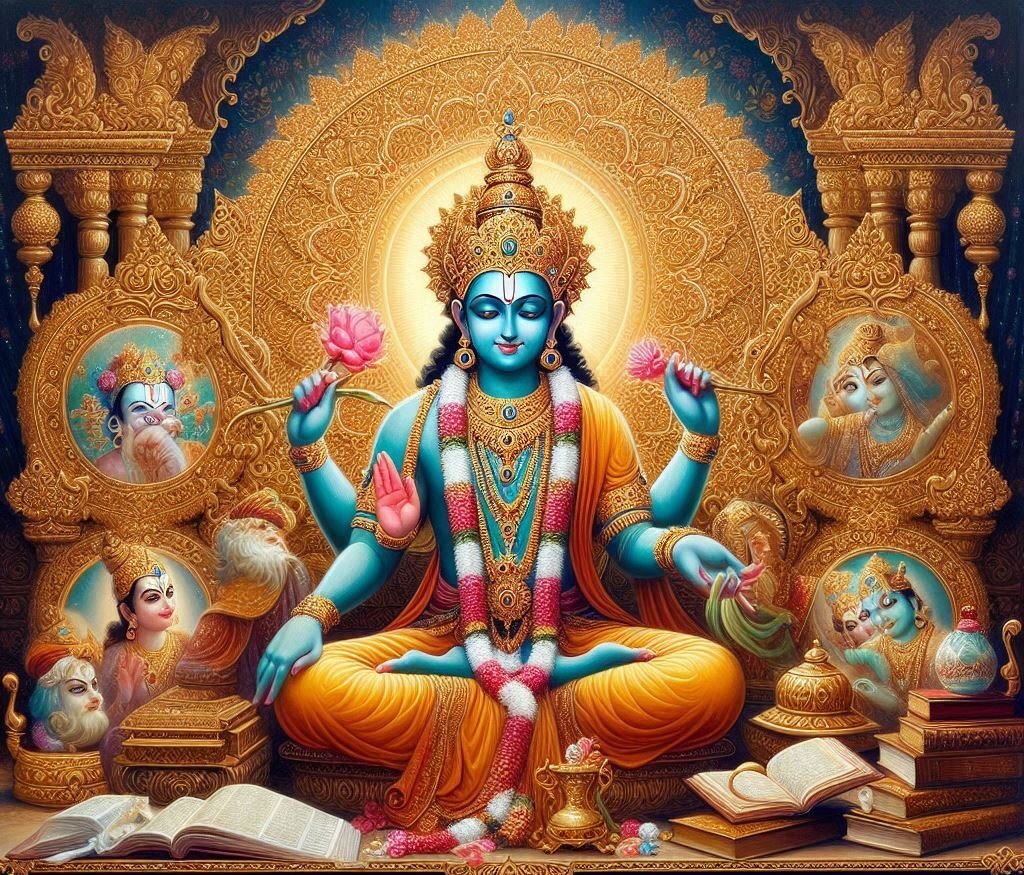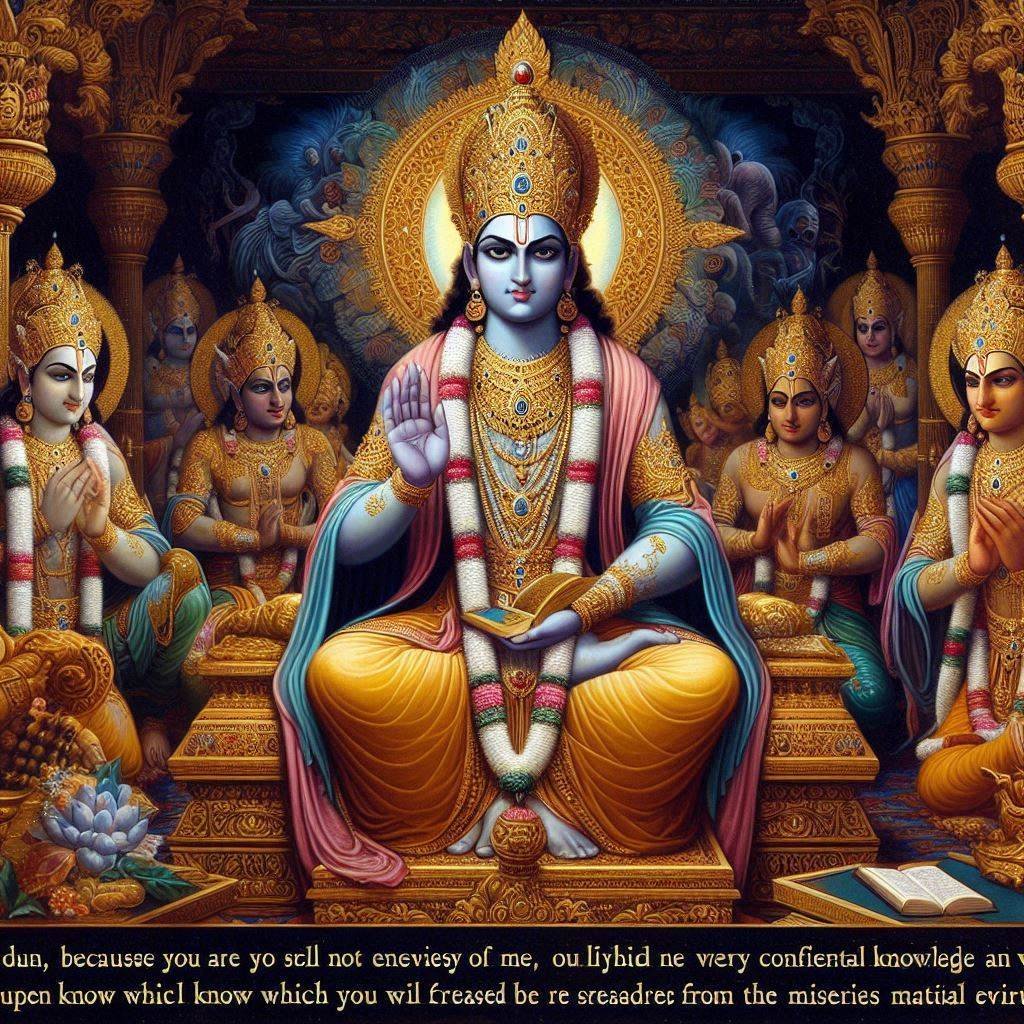Shrimad Bhagwat Geeta Chapter 9 shlok 10
Under My guidance, this material energy creates all animate and inanimate forms, O son of Kunti. As a result, the material world undergoes the cycles of creation, maintenance, and dissolution. Description As explained in the previous verse, God does not personally engage in creating life forms. Instead, His various energies and appointed souls carry out …

